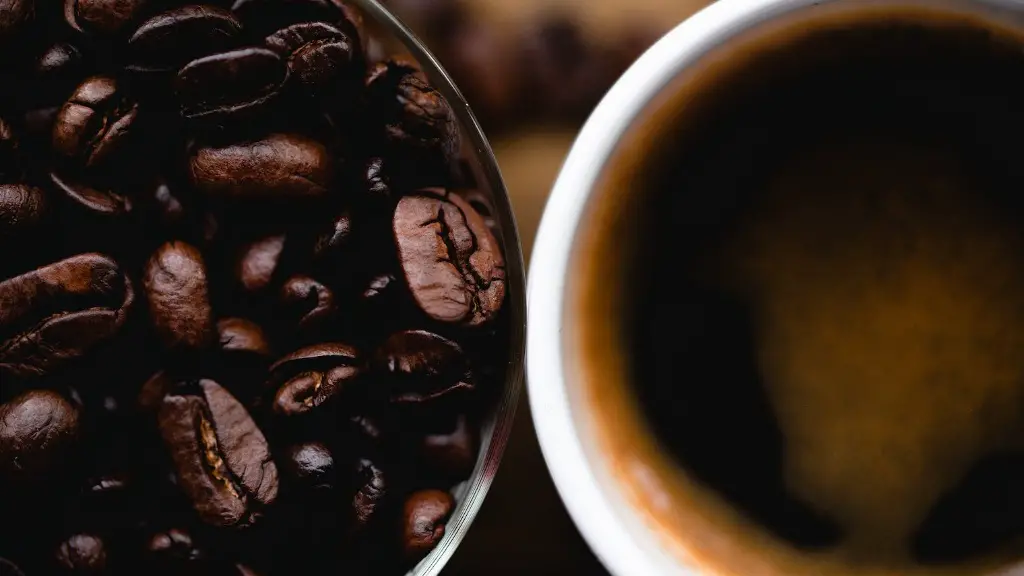Caffeine Content
Coffee is one of the most popular hot beverages in the world, and it contains caffeine, which is a stimulant. Caffeine has been linked to increased alertness and energy levels, but it can also have negative effects for some people. Drinking too much coffee can lead to caffeinism, a condition that causes irritability, restlessness, insomnia, and even headaches.
The amount of caffeine in a cup of coffee varies according to how it’s brewed. For example, a teaspoon of instant coffee contains around 60-80 mg of caffeine, while a cup of espresso contains around 70-80 mg. A brewed cup of coffee contains around 95-200 mg. If you are sensitive to caffeine, even small amounts of it can lead to anxiety.
Stress Linked to Caffeine
People who drink too much coffee may also be more prone to feeling stressed, as the caffeine can interfere with the body’s ability to relax. Caffeine can cause the body’s stress hormones to rise, increasing the heart rate and muscle tension. People who are prone to anxiety, panic attacks, and stress may be more sensitive to the effects of caffeine.
A study conducted in 2018 found that drinking more than four cups of coffee per day was associated with lower levels of resilience and greater levels of stress. The link was even more pronounced for people who were prone to stress and anxiety.
Negative Effects
Drinking too much coffee can also lead to other negative effects, such as increased blood pressure, increased heart rate, restlessness, irritability, and insomnia. The more coffee you drink, the more likely you are to experience these symptoms.
People who are prone to anxiety and panic attacks should be careful when drinking coffee, as it can trigger the symptoms. It is important to be aware of how much coffee you are drinking and to take breaks from it if you are feeling anxious.
Effects on Mental Health
The effects of coffee on mental health are still debated, but some studies have suggested a link between coffee consumption and anxiety. A study in 2018 found that drinking more than four cups of coffee per day was associated with higher levels of anxiety. This could be because of the caffeine’s stimulating effects on the body.
In addition, higher levels of coffee consumption have been linked to other mental health issues, such as depression and schizophrenia. It is important to note, however, that no firm conclusions can be drawn, as these studies are not conclusive.
Moderation is Key
While drinking coffee can have some negative effects, it can also have positive effects, such as increased alertness and energy. It is important to remember that moderation is key when it comes to coffee consumption. Try to keep your intake to one or two cups per day to avoid any adverse effects.
It is also important to be mindful of your own sensitivities. If you are prone to anxiety or panic attacks, it may be best to avoid coffee or limit your intake.
Relation With Mental Disorders
It is important to note that drinking too much coffee is not the only factor which can contribute to anxiety or other mental health disorders. These disorders are often a result of a combination of genetic, environmental, and lifestyle factors.
If you are experiencing persistent anxiety or other mental health issues, seek professional help. There are various treatments available, such as counselling and medication, which can help to improve your symptoms.
Factors to Consider
The idea that drinking too much coffee can lead to anxiety is still being debated, as there is not enough scientific evidence to determine a definite link. However, there are some factors which are worth considering if you are worried about your coffee intake.
Experts recommend limiting your intake to one or two cups per day, and being mindful of your own sensitivities. If you find that drinking coffee makes you feel anxious or just not yourself, then it may be best to avoid it altogether.
Genetics and Metabolism
It has been suggested that genetics and metabolism may play a role in how caffeine affects us. Some people are more sensitive to the effects of caffeine and can experience anxiety after drinking too much coffee. It is important to be aware of your own body and how it reacts to caffeine and other stimulants.
Caffeine affects people differently, so it is important to monitor your own intake and be aware of how it affects you. If you are feeling anxious or overwhelmed after drinking coffee, it may be best to cut back or avoid it entirely.
Sleep and Caffeine
Caffeine can also disrupt your sleep patterns, as it can increase alertness and reduce the quality of your sleep. Drinking too much coffee can also make it harder to fall asleep, as the stimulating effects of caffeine can cause the body to produce more adrenaline.
Caffeine can have a cumulative effect in the body, so it is best to avoid it in the evening and late at night. If you are having trouble sleeping, try to limit your daily caffeine intake and avoid it close to bedtime.
Summary
Drinking too much coffee can lead to anxiety and other negative effects, such as increased heart rate and restlessness. People who are prone to anxiety and stress may be more sensitive to the effects of caffeine. It is important to be mindful of your own caffeine consumption and to limit your intake to one or two cups per day.
Genetics and metabolism can also play a role in how caffeine affects us, and it is important to be aware of your own body and how it reacts to caffeine. People who are having trouble sleeping should also try to limit their daily caffeine intake and avoid it close to bedtime.





